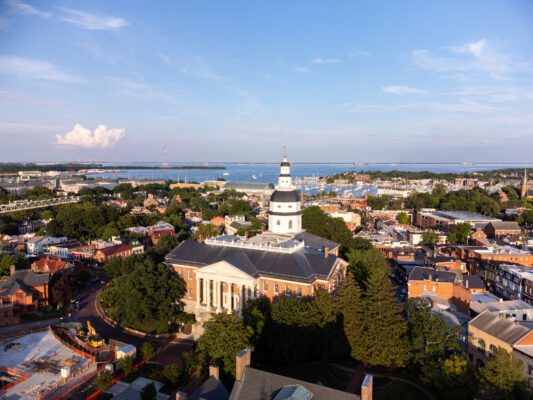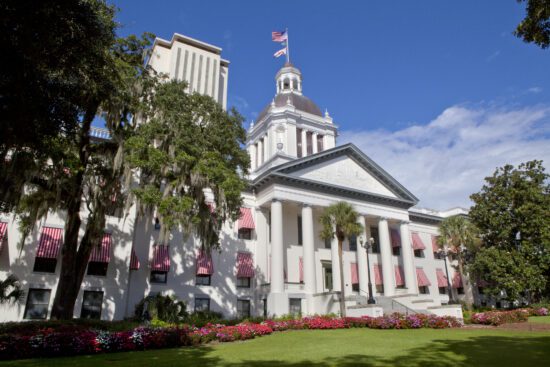For years, the United Methodist Church (UMC) appeared poised to follow in the footsteps of other Mainline Denominations toward liberal theology and declining cultural relevance. But the last few weeks have proved otherwise.
In a shocking turn of events, the nation’s third largest religious body—with 12.1 million adherents worldwide—has chosen to maintain its stand on biblical sexuality, became more pro-Israel and reversed its longtime support for abortion. We may be seeing the UMC bend toward the long arc of orthodoxy.
The UMC held its quadrennial General Conference (GC) May 10-20 in Portland, Ore. As the church’s top legislative body, GC considered more than a thousand resolutions. LGBTQ activists, anti-Israel advocates, and pro-choice “reproductive rights” feminists all lobbied to liberalize the denomination, but to no avail. Instead, the denomination moved in the opposite direction, making substantive progress toward a biblically-founded social witness.
Most headlines about GC will inevitably highlight delegates’ decision to table the debate about sexuality pending recommendations from an official commission. The good news is that the UMC still officially holds that “the practice of homosexuality is incompatible with Christian teaching” in its Book of Discipline. Despite disruptive protests and political maneuverings, LGBTQ activists failed to change that fact at GC. Rogue clergy can still be disciplined for performing same-sex weddings and for engaging in homosexual activity.
Another positive move at GC was to withdraw denominational support from the Campaign to End the Israeli Occupation, a coalition that advocates for the Boycott, Divestment, and Sanction (BDS) strategy against Israel. In addition, proposals by anti-Israel activist at GC mandating the UMC divest its multi-billion dollar pension fund from Israel were soundly defeated.
But perhaps most encouraging, delegates at General Conference reversed the denomination’s long-established support for abortion. First, they voted 425 to 268 (61 percent to 39 percent) to withdraw from the Religious Coalition for Reproductive Choice (RCRC). The UMC helped found the pro-abortion lobbying group in 1973, and two church agencies—the General Board on Church and Society (GBCS) and United Methodist Women (UMW)—still actively supported the group.
RCRC is so radical, it even defended the practice of late-term, partial-birth abortion on demand. The Washington-based lobbying group had the gall to describe their efforts to promote “abortion care” as “holy work.” Delegates further censured RCRC by retracting a longstanding resolution that explicitly supported the organization’s mission. The UMC’s “release from RCRC seems like a spiritual liberation from a very dark captivity,” said Mark Tooley, president of the Institute on Religion and Democracy (IRD).
GC did not stop there, however. In a surprising success for pro-life Methodists, GC also overturned UMC support for Roe v Wade. The denomination had maintained a forty-year-old resolution that affirmed the U.S. Supreme Court’s decision that legalized abortion across America.
Ethics & Religious Liberty Commission president Russell Moore lauded both moves on social media. “Thank you United Methodists #UMCGC for voting to sever ties with the abortion lobby Religious Coalition for Reproductive Choice,” he tweeted. Moore called it a “major victory for all gospel Christians,” retweeting IRD communications manager Jeff Walton regarding the vote.
Responding to a tweet by IRD United Methodist director John Lomperis announcing that GC reversed its stance on Roe v Wade, Moore proclaimed: “O for a thousand tongues to sing!”
Baptist Press bureau chief Tom Strode reported that other Southern Baptist leaders joined Moore in praising the UMC’s pro-life trajectory. He noted that the progress at GC paralleled the “step taken by the Southern Baptist Convention decades before.” The Southern Baptist Convention backed away from its historically liberal stances on issues like abortion beginning in the late 1970s.
“Southern Baptists will remember that we were also on the wrong side of the pro-life divide in the late 1960s and early 1970s,” Union University Provost C. Ben Mitchell told Baptist Press. “We happily join hands with all people of good will who advocate for the sanctity of human life from womb to tomb.”










